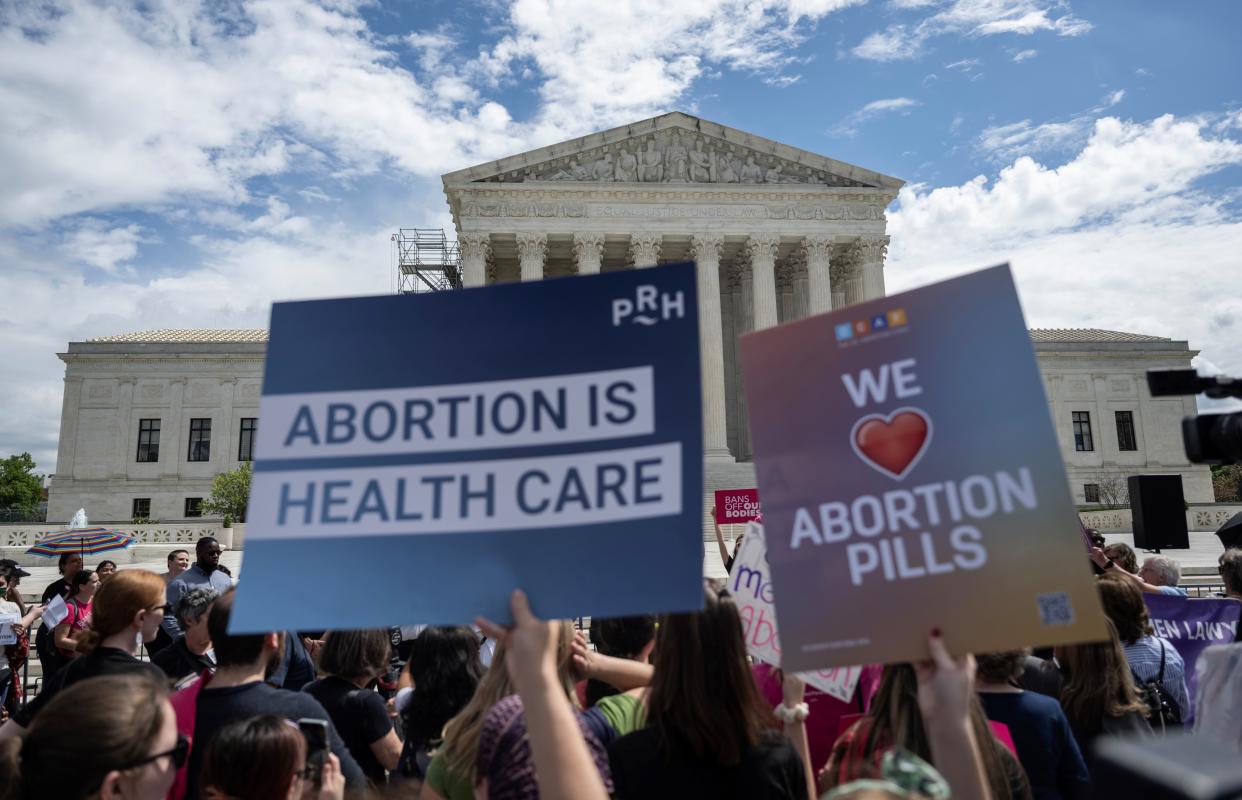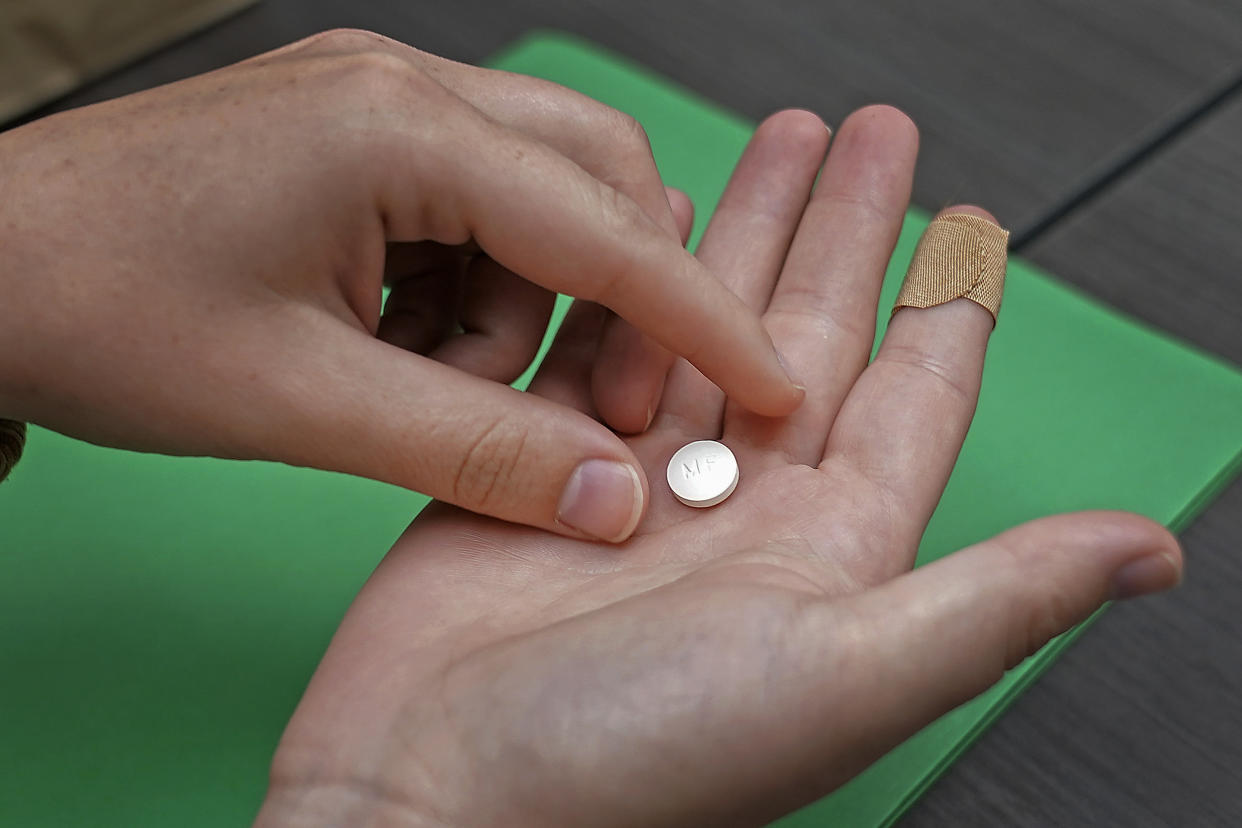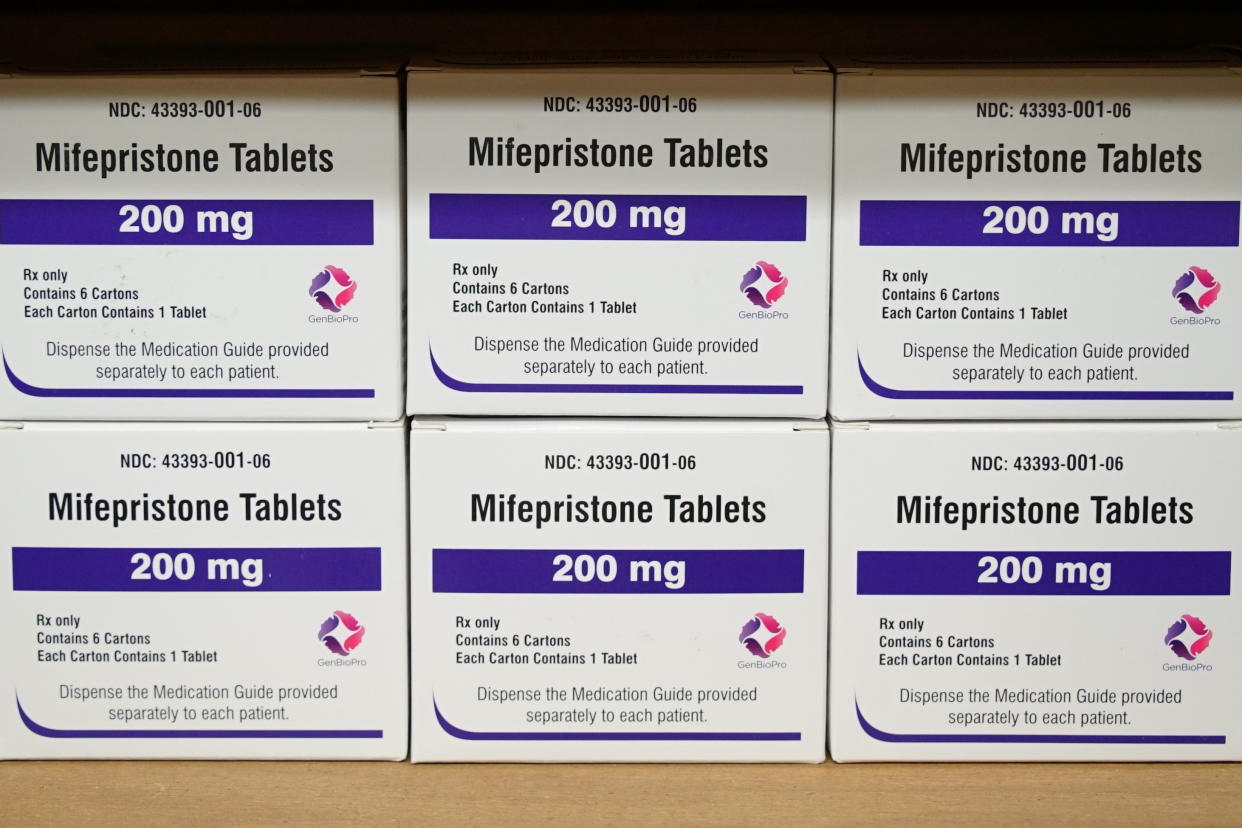Supreme Court ruling allows access to abortion drug for now
The US Supreme Court issued an emergency order Friday that, for now, effectively maintains women's legal access to the abortion medication mifepristone.
The order, granting a stay of a district court's order that sought to temporarily block access, as well as an appellate court's subsequent order that temporarily revived access on a limited basis, comes a week after the court received urgent requests from the Biden administration and mifepristone manufacturer Danco, asking it to intervene in those disputes over the FDA's approval of the drug.
"The April 7 order issued by the US District Court for the Northern District of Texas is stayed pending disposition of the appeal in the US Court of Appeals for the 5th Circuit," the high court wrote in the order. The court, which voted 7-2 to issue the stay, said the pause would survive an appeal of the district court order, if a timely appeal is made, as well as an appeal to the Supreme Court, should the court agree to hear such a potential case.
Associate Justice Samuel Alito, who submitted the matter to the full court, dissented from the court's decision. Associate Justice Clarence Thomas also disagreed with the pause, saying he would instead deny the applications for stays.
“Today’s Supreme Court ruling keeps mifepristone available. We urge the Fifth Circuit to overturn the order as this case goes to an appeal," GenBioPro, the generic maker of mifepristone, said in a statement.

On April 17, Supreme Court Associate Justice Samuel Alito extended a temporary stay first issued on Wednesday permitting mifepristone to remain on the market.
In the US, two companies are FDA-approved to produce and sell mifepristone: Mifeprex brand manufacturer Danco, and generic manufacturer GenBioPro. The drug is the first of two separate medications taken to terminate pregnancy in a medical abortion and to treat miscarriage. Misoprostol, which is also used to treat ulcers and other ailments, is used in the second step of the two-pill regimen.
Access to the drug came under pressure this month, after a US district court judge in Amarillo, Texas, on April 7 ordered a temporary suspension of the US Food and Drug Administration's 23-year-old approval, and after the 5th Circuit Court of Appeals in New Orleans tailored the suspension to restore access, but according to outdated and more restrictive FDA rules.
The respective orders sought to limit access pending resolution of a lawsuit filed in the Amarillo federal district court. That suit, filed by anti-abortion groups and individual doctors, challenges the validity of the the FDA's original 2000 approval of Danco's brand name mifepristone, Mifeprex, along with its later approval of a generic version in 2019, and relaxed regulations that took effect in 2016 and 2021.
The district court's order, which never took effect, would have effectively blocked access to mifepristone.
Instead, the 5th Circuit Court of Appeals partially granted requests from the administration and Danco to temporarily reinstate the FDA's authorization. However, that order reverted FDA mifepristone regulation back to 2016, which prohibited mail-order prescriptions, restricted use beyond seven weeks of pregnancy, required patients to make three in-person office visits. The new rules allowed non-doctors to prescribe and administer the drug and eliminated a requirement for prescribers to report non-fatal adverse reactions to the medication.

The FDA said in a court filing that its regulatory regime would be "scrambled" unless the Supreme Court stops both of the lower court's orders from taking effect.
"Every extant package of Mifeprex would instantly become misbranded and could not be lawfully introduced into interstate commerce," the agency argued in response to the appellate court ruling. The generic version of the drug, it said, which was approved in 2019 and accounts for most of the market, "would cease to be approved altogether."
In a separate reply brief filed by Danco, the company characterized the lower court orders as "first-in-a-century judicial second-guessing of FDA’s scientific judgment" that prompted "immediate chaos and nationwide confusion."
The district court's stay was issued by US District Judge Matthew Kacsmaryk — a Trump appointee serving in the Northern District of Texas.

Mifepristone is now used for a majority of abortions in the US and nearly all medical abortions. According to the FDA, the drug has been FDA-approved for 23 years and prescribed 5.6 million times since 2000. It is also associated with 28 patient deaths — which forms one of the central arguments for the anti-abortion group's lawsuit, Alliance for Hippocratic Medicine v. FDA.
The group argued that the agency unlawfully fast-tracked the drug's approval absent safeguards against potential life-threatening conditions that can occur, for example, if taken during ectopic pregnancy.
Since the Supreme Court last year in Dobbs v. Jackson Women’s Health Organization overturned the Constitutional right to abortion, the procedure has been fully banned in 13 states and banned after a certain duration of pregnancy in five US states.
The Texas district court case one of two similar cases playing out in separate jurisdictions, and with orders in direct conflict.
In another district court case brought in Washington state by eighteen state attorneys general, US District Judge Thomas O. Rice conversely ruled that no changes to mifepristone access could be made until the conclusion of litigation challenging FDA restrictions on the medication.
The states in the Washington case claim that the FDA should be required to do away with special regulatory steps concerning mifepristone known as "REMS" or Risk Evaluation and Mitigation Strategy.
GenBioPro, as well as a coalition of 24 state attorneys general filed separate amicus briefs urging the Supreme Court to stay the appellate court ruling until the case is decided on appeal.
Alexis Keenan is a legal reporter for Yahoo Finance. Follow Alexis on Twitter @alexiskweed.
Read the latest financial and business news from Yahoo Finance
Download the Yahoo Finance app for Apple or Android
Follow Yahoo Finance on Twitter, Facebook, Instagram, Flipboard, LinkedIn, and YouTube
